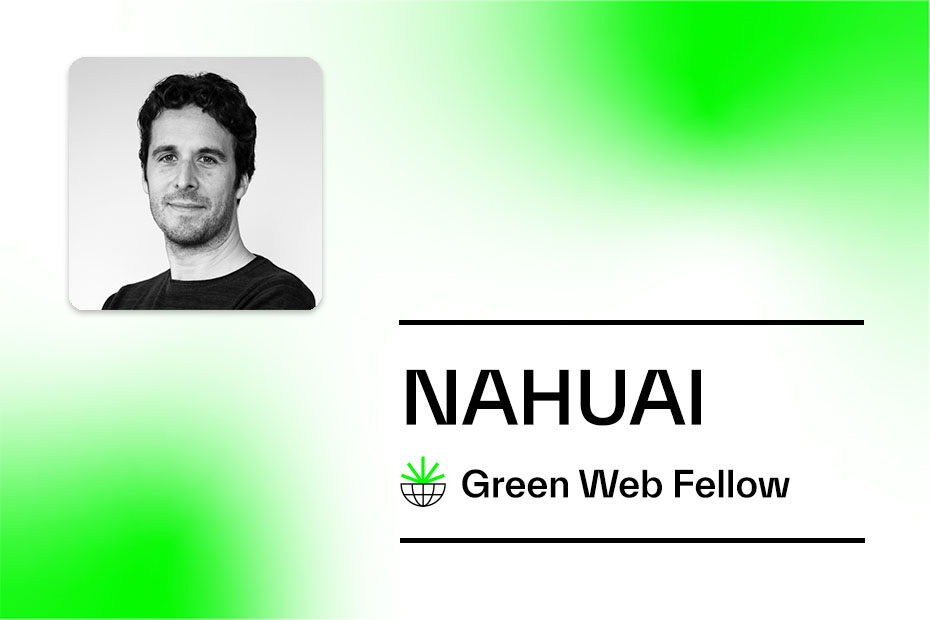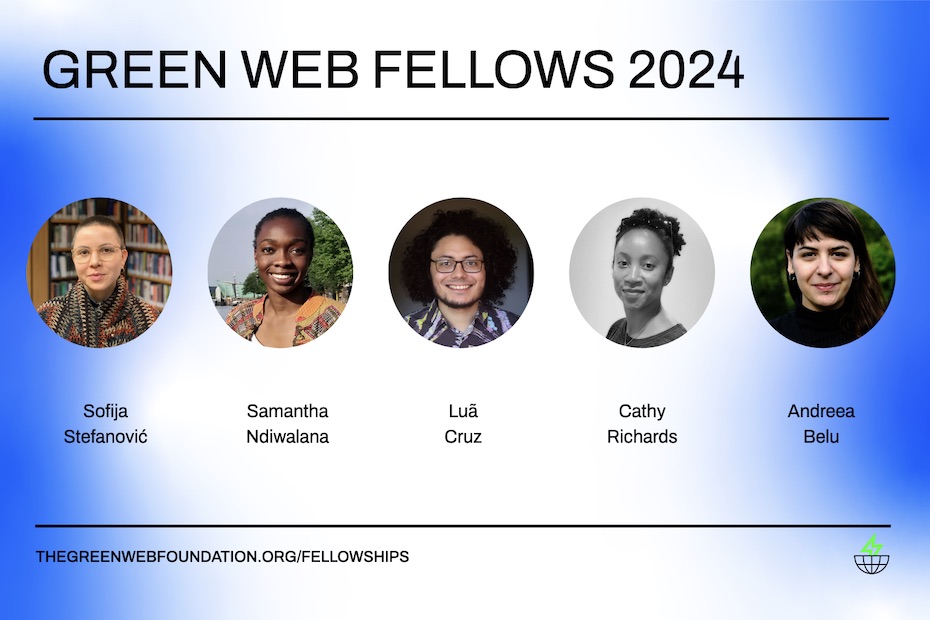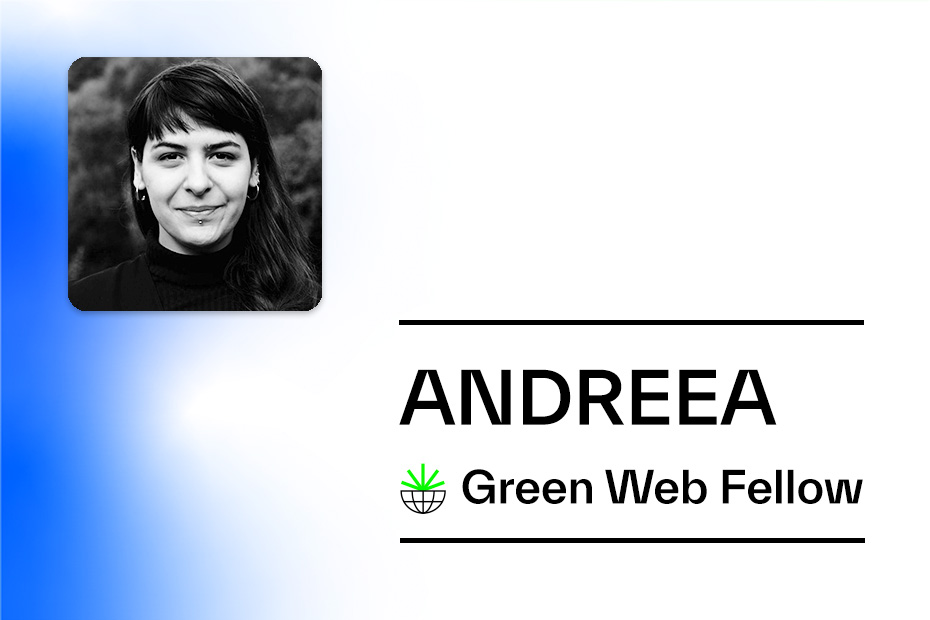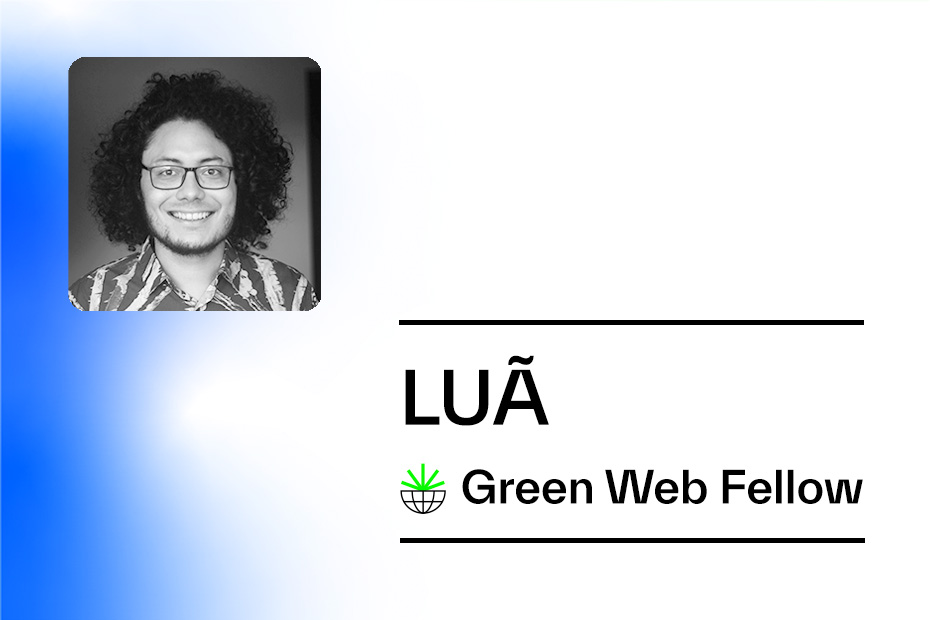Here I am again, after 10 months of an amazing journey, looking forward to explain you the last chapter.
A few days ago I did the final presentation of my Green Web Fellowship project and the great people behind Green Web Foundation were kind enough to transcribe it. Since I’m quite into recycling (and I really appreciate the effort) I’ll use it as a backbone for my last post.
So let’s get into it:
The project
The final name of my project for the Green Web Fellowship is called Sustain WP.
It’s a limited podcast series about digital sustainability and WordPress. But I don’t want to get ahead of myself. I would like to give you some context before I start rambling about my project.
The context
My project focused on WordPress. So I have put together a few nice facts about it: WordPress is the most popular CMS or content management system. Basically, more than one third of all websites are running on it. As you can imagine with this market share, if you achieve small changes, it can have a big impact. That was one of the things that appealed to me from the very start.
Also, it’s an open-source project that is free, as in freedom. Its motto is “democratize publishing” , which I think is pretty cool. On top of that, it has quite an open and vibrant community. Having said that, there are always issues and there are always things that can get better.
The issues
The issues I wanted to address or tackle during this project were mainly the lack of awareness of digital sustainability, both of the community and of the users. They don’t really make that link between the impact the internet can have on the physical world. If they do, there is the issue of the carbon tunnel vision, which mainly equals sustainability to CO2 emissions. CO2 emissions are not the whole picture, as you can imagine.
The aims of the project
The project idea had several goals. One of them was to raise awareness on sustainability, bringing a holistic point of view into WordPress. So, not only talking about CO2, that’s already now quite popular, but also about other parts of sustainability we should be talking about.
Another goal was to spark a conversation about this topic inside the community. To be a bit sneaky, and to try to use WordPress as an excuse to introduce broader digital issues to the community. So, using WordPress as an excuse, you can bring new ideas so we can talk about it.
The original idea was to tackle these things inside a workshop that I would run in a WordPress event, and to document the workshop so that more people could do it over time. That was quite an optimistic point of view. However, at some point during my fellowship, I realized while talking to Hannah Smith, that maybe making a podcast could reach more people of the community and therefore have a bigger impact in WordPress. Once I saw all the benefits, I went for it. Right now, it’s already available, the website that is Sustain WP, with the first few episodes.
The idea is to have a limited series, not to run endless podcast. It’s going to have eight episodes, released each week. I will explain a bit later what was the reason behind it.
The learnings
If I would have to summarize the learnings in one sentence it would be “a lot”, but you are probably expecting more specificity in my answer.
Probably the bigger learning is that sustainability is really an umbrella term, and a lot of things can go under that in terms of environmental impact of making software or hardware, and also how the same can impact the social and economic parts because there is a huge link between them.
Another learning is about open-source projects like WordPress. The social and economic parts are quite important, if we want to keep the project ongoing, for longevity. It was really interesting to investigate and learn more about it. Also, sustainability means different things to different people. I think we should keep it in mind when we are communicating about it and also ask people what it means to them, so we can start putting even more things under this umbrella. At least that’s my point of view. Of course, during this learning process I really feel more knowledgeable thanks to the format of the project.
I also built a stronger network of people that are working on data sustainability, which I think is pretty cool for me, but it can also have a nice impact or in the WordPress community. That’s is a win-win for everyone. Another nice or interesting personal learning point was around being flexible. My initial idea of the workshop was living in my head, even after the midterm presentation. There were a lot of things invested already there, but I really saw the benefits of changing it. It was really nice to have the endorsement of the organizers to make the change.
The change
What changed for me and for the project for this part?
I really have to talk about how I lived in a parallel way and very intertwined with the creation of WordPress Sustainability Team and the project, and they benefited from each other. When I started the fellowship, there was an initiative of making an official team, but it was just an initiative. At that point I was behind it with other awesome people.
The initiative became an official team in summer. That was a huge achievement. WordPress could lead somehow in sustainability and maybe others (CMS or open-source projects) can follow us. It’s great for the whole ecosystem. When we were writing the roadmap of everything we wanted to do, we already did with the three pillars of the doughnut economic model in mind. It was not only my idea. There were more people working on it and were on board with that. But I think that’s been a lot of interactivity between what I learned in in the WordPress project and the fellowship.
It was really nice to have the space to have these two things going together. Of course, as I have performed almost all the interviews right now, it’s more than ten people that are experts in the WordPress community and/or in digital sustainability. So, it was super nice to talk with them and I learned a lot from them.
I also could explain to them what the Green Web Foundation was and what cool things they are already doing.
The future
I would like to see my project as a starting point. Indeed, as I explained, I’m going to continue publishing episodes and I will share it on social media and maybe other podcasts.
The idea to leave one week between the episodes since they are going to be monographic is that people can go to the comments or to whatever social media they are most comfortable with and share their ideas. So, I would like to spark somehow some conversation about it. And of course, it also serves a double purpose. One of them is attract to people to join the WordPress Sustainability Team, which is quite new. We have a lot of space and cool things that we can do in the future. And the other is to invite people that are already in the WordPress community to apply for the new cohort of the Green Web Foundation Fellowship.
I think that there can be a lot of cross pollination between the two communities.
I hope you found my presentation interesting.
If you just scrolled until here because you are not in the mood of reading too much today (but you are still interested in my experience) I can offer you another options:
- Watch or hear the presentation below
- Listen to Sustain WP podcast, especially the episode 1 where I explain my experience together with Hannah Smith (a previous Green Web Fellow). You will get two experiences for the price of one.
- If you want to listen to my Green Web Fellowship experience in Spanish you can do it on my podcast.
Closing remarks
I’d like to finish giving huge thanks to everyone on the Green Web Foundation and the rest of the fellows for making this experience so nice.
The weekly meetings have been an open and save space to share our experience. We could share our learnings, fears, anecdotes… and on top of that we had really interesting guests talking about specific topics.
I guess what I’m trying to say is that I’m grateful for the experience and I really recommend it to everyone.



